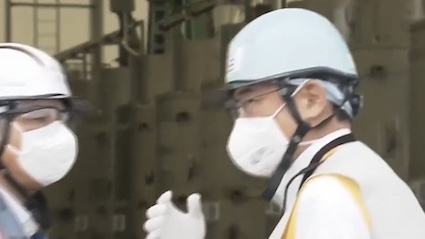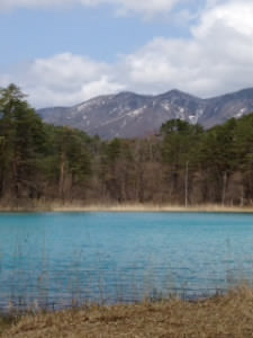Fukushima Radioactive Treated Water Released into the Sea
Kanako Mita and Sawako Utsumi
Modern Tokyo Times

Prime Minister Fumio Kishida gave the go-ahead to release radioactive treated water into the sea from the stricken Fukushima Daiichi Nuclear Power Plant.
The BBC reports, “Some 1.34 million tonnes of water – enough to fill 500 Olympic-size pools – have accumulated since the 2011 tsunami destroyed the plant.”
Kishida insists that few options exist. Thus, releasing radioactive treated water into the sea is an essential stage of decommissioning the nuclear plant – according to the Japanese government.
Professor Gerry Thomas (Imperial College London – molecular pathology) said: “Anything released from the site will therefore be massively diluted.”
Al Jazeera reports, “Monitors from the International Atomic Energy Agency (IAEA), which has backed the plan, will be on-site for the discharge, and samples of water and fish will be taken.”
The International Atomic Energy Agency (IAEA Director General Rafael Mariano Grossi) said: “IAEA experts are there on the ground to serve as the eyes of the international community and ensure that the discharge is being carried out as planned consistent with IAEA safety standards… Through our presence, we contribute to generating the necessary confidence that the process is carried out in a safe and transparent way.”
China – and other nations and internal pressure within Japan – disagree.
Wang Wenbin, the Foreign Ministry Spokesperson, said: China would take “necessary measures to safeguard the marine environment, food safety and public health.”
The spokesperson continued by saying Japan is “putting its own self-interest over the long-term well-being of all humankind.”
Lee Jay Walker says, “The geopolitical divide, with South Korea coming on board under President Yoon Suk Yeol, entails that China, North Korea, and the Russian Federation in Northeast Asia oppose the move by Japan. However, South Korea (under Yoon) and Taiwan are more understanding of Japan’s stance under Kishida. Therefore, the increasing anti-China and anti-Russian Federation axis – formulated by President Joe Biden of America – entails a lack of sincerity on all sides of the divide.”
The people of Fukushima – irrespective of their respective stances on releasing radioactive treated water – have fallen victim to endless negative press despite the vast majority of this prefecture being blessed with stunning nature. Hence, positive angles of Fukushima have been ignored by the media. This includes the mountain landscape of Ura-Bandai (this notably applies to Goshiki-numa – five ponds of color), Abukuma Cave, and cultural places like Morohashi Museum of Modern Art – which provide a wealth of places to enjoy.

Naturally, the tourist sector and local fishing communities in Fukushima are concerned about the handling of the release of radioactive treated water into the sea. Indeed, fishing communities opposed to Kishida’s plan pleaded for the government to listen to their voices – to no avail.
AP News reports, “Fukushima’s current fish catch is only about one-fifth its pre-disaster level, in part due to a decline in the fishing population. China has tightened radiation testing on Japanese products from Fukushima and nine other prefectures, halting exports at customs for weeks, Fisheries Agency officials said.”
France 24 reports, “The South Korean government, which is seeking to improve ties with Japan, has not objected, although many ordinary people are worried and have staged protests.”
March 11, 2011, will always be a day of horrendous sadness in Japan. This concerns the events that happened following the Great East Japan Earthquake that triggered a devastating tsunami. The upshot was the death of approximately 16,000 people – and a few thousand people who remain missing. Also, the tsunami that followed the earthquake unleashed the nuclear radiation crisis in Fukushima – which continues to be a cause of concern in 2023.
In the twelve years that have followed, the people of Fukushima – from the tourist sector to fisheries – often appear to be a political, geopolitical, environmental, and media football where their voices come last on the list.
Accordingly, Kishida’s meeting with the local fisheries community sums it up – hence, their opposition was brushed aside.
Last year, a representative (Nozaki Tetsu) of the Fukushima Fisheries Co-operative Association said: “From 25,000 tonnes per year before 2011, only 5000 tonnes of fish are now caught… We are against the release of radioactive materials into our waters. What worries us is the negative reputation this creates.”
Others in Fukushima are also worried about the continuing impact on the tourist sector, people relocating for work to this prefecture, and so forth.
https://mashable.com/2011/04/17/japan-tsunami-video – TSUNAMI VIDEO

Modern Tokyo News is part of the Modern Tokyo Times group
http://moderntokyotimes.com Modern Tokyo Times – International News and Japan News
http://sawakoart.com – Sawako Utsumi and her website – Modern Tokyo Times artist
https://moderntokyonews.com Modern Tokyo News – Tokyo News and International News
PLEASE JOIN ON TWITTER
https://twitter.com/MTT_News Modern Tokyo Times
PLEASE JOIN ON FACEBOOK